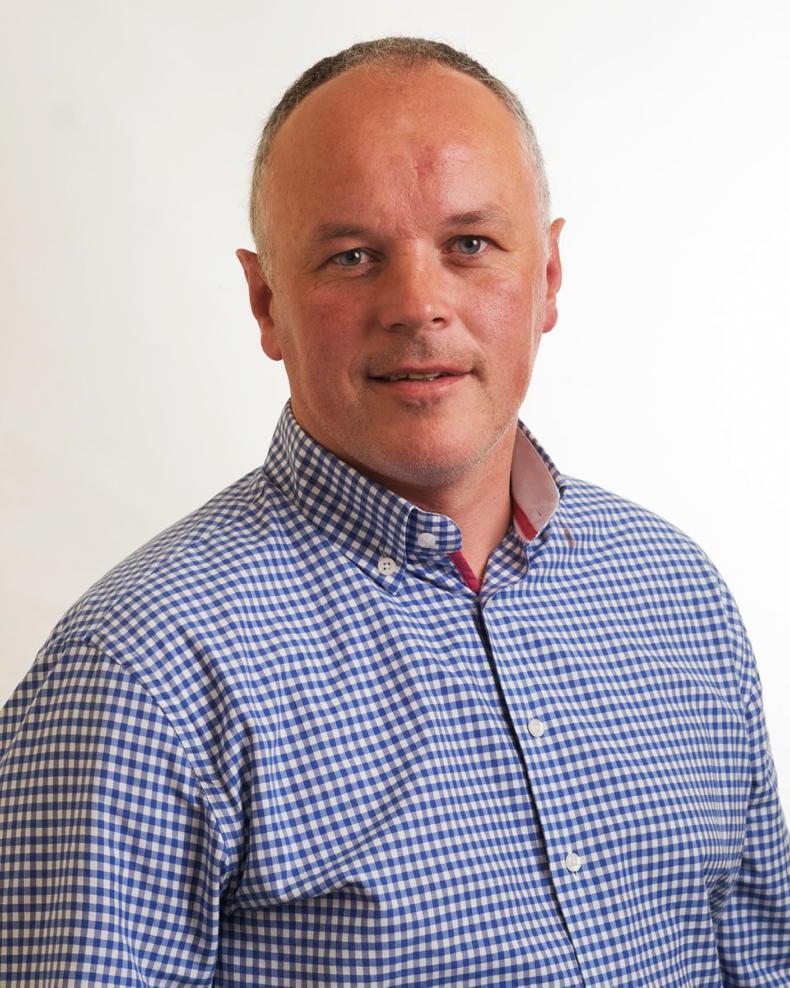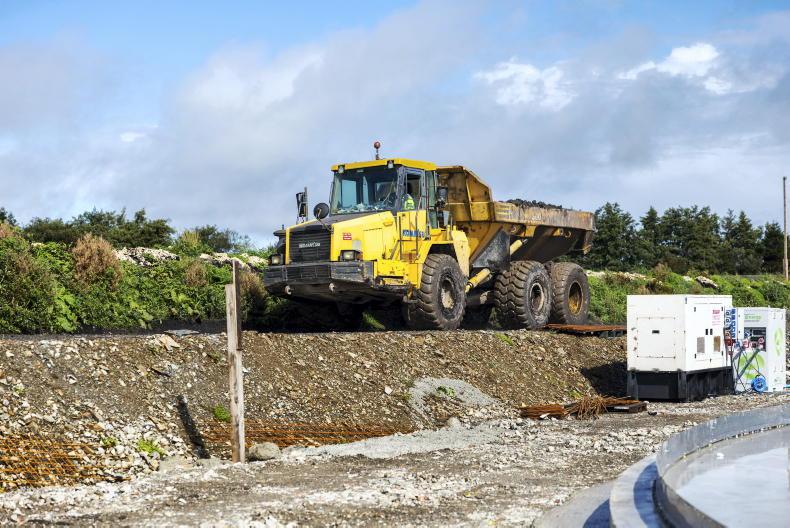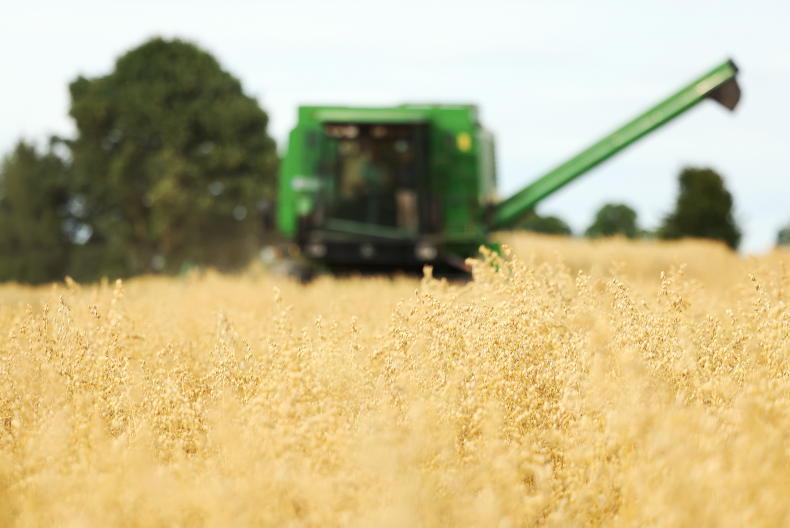Despite increased Government funding and promised supports behind organic farming endeavors, some serious barriers still stand in the way of reaching Ireland’s EU Farm to Fork goal of 7.5% of agricultural land being farmed organically by 2030.
New research indicates that an important way forward is to address the socio- and psychological factors which can lead to misleading impressions of organic farming – like the idea that organic food producers are “hobby farmers”.
LIFT Project
The aim of the European Commission funded, four-year Low Input Farming and Territories (LIFT) Project – which is now coming to an end – was to gain an understanding on how socio-economic factors and policy impact ecological approaches to farming.
Teagasc received funding to undertake Ireland’s portion of this project.
They interviewed farmers to better understand the values or beliefs which either led them to convert to organics or remain in a conventional system.
Dr Mary Ryan, who focuses on rural development and environmental economics at Teagasc, was one of the researchers who worked on the project.
“Similar interviews were undertaken in France and Sweden,” she says.
“While there were differences in values and beliefs across the three countries, profitability was a major driver for both cohorts, with organic farmers having stronger values and beliefs (which could be interpreted as being more ‘committed to the system’).”
Behaviours and attitudes
Professor Andrew Barnes is an applied economist specialising in agricultural and rural policy.

Professor Andrew Barnes's main area of interest is behavioural changes in farmers when presented with new approaches, technologies or ideas.
He heads the rural economy, environment and society department at Scotland’s Rural College (SRUC). His main area of interest is behavioural changes in farmers when presented with new approaches, technologies or ideas. He was heavily involved in the LIFT Project and, in particular, the research undertaken by Mary and the team at Teagasc.
“Our role was to look at farmer perceptions,” he explains. “We’ve done a lot of work to understand what the barriers are in terms of switching a farming system and how they can be overcome.
“Ultimately, we’re preparing recommendations for future policy,” he adds.
Social norms
Andrew says there are many factors – including current Government policies or lack of incentives – which turn farmers off from organics. However, something as simple as the way farmers speak to each other is equally important to address.
“One thing we found in the research is the role of what we call ‘social norms’ – that scepticism which goes through the farming industry towards [organics] – may have a real negative effect,” he says.
Joe Kelleher, one of two organics specialists at Teagasc, likens this to the “what will the neighbours think?” narrative.

Joe Kelleher is one of two organic specialists at Teagasc (the other is Elaine Leavy).
“[This] can play hugely on people’s minds and requires a lot of self-belief to overcome,” he says. “The advice here is to decide if organic farming fits in with your mindset.”
Resistance to conversion
It’s not easy switching from a conventional farming system directly into organics, and most farmers currently in conversion started making more manageable changes years prior to making the decision.
In the face of unprecedented climate and financial challenges, it perhaps wasn’t too surprising to see a large number of “organic curious” conventional farmers on a recent Teagasc organic farm walk.
It was even less surprising to hear that few were likely going to be ready to apply for the 2022 Organic Farming Scheme (OFS). Joe says there are many reasons why farmers choose not to convert, but that any steps toward regenerative practices are valuable in our current climate.
“Trying to reduce your reliance on [synthetic] inputs for a year or two can often make sense as a way of dipping your toe in the water,” he says. “Organic farming currently occupies only 2% of the useable land area in Ireland and our target is to increase this to 7.5%. At 2%, organic farming is very much a niche sector, at 7.5% it is still niche – just a bigger niche. That means that 92.5% of our farmland will still be farmed using non-organic methods, and I would love to think that a large percentage of this land would be farmed using regenerative practices.”
Kay O’Sullivan made the move to organics in 2010 and was certified organic two years later. She farms beef and lamb on her Co Cork farm.

Kay O’Sullivan (left) and Eimear Connery;Teagasc Mallow. Kay farms organic suckler beef and lamb in Co Cork.
“In 2009 I looked at the organic option for my farm,” she says. “I attended organic farm walks and completed the Teagasc organic course, which gave me great insights. On 1 January 2010, the farm converted to organics through The Organic Trust. This year I’m part of the Teagasc Signpost Future Beef programme. My main enterprises are sucklers to beef, and lamb.”
Kay sells her lamb through her own private market – mainly to other organic producers – and any surplus is sold to Irish Country Meats. Her cows, which are easy-calving Angus, calve in March and her cattle are sent to Good Herdsmen for beef processing at 1.5 years. Aside from cull animals, she makes an organic premium on all of her products (Good Herdsmen confirmed it is currently paying €5.30/kg for cattle up to 36 months).
“I suppose I always had an interest [in organic conversion], but it just took a bit of a push in the end,” she says. “It actually really suited my farm.”
Kay advises anyone interested in conversion to attend farm walks and speak with other organic farmers with similar setups. She lists the organic premium, use of multi-species swards and how her animals’ health has improved over the years as some of the positives since moving into organics. But were there any negatives?
“I suppose it’s been 12 years since I converted,” she laughs. “Look, there is a lot of paperwork attached to it but if you can get over that hurdle you’re flying it.”
Irish Country Living asks Kay if she ever worried about what the neighbours might think as she converted into an organic system. “I never worried about what other people might think about me converting. I’m happy about it myself, and once I’m happy about it, that’s it.”
Regenerative practices
There are many ways to introduce on-farm regenerative practices to help reduce the need for synthetic inputs and increase biodiversity. These can include sowing clover and multi-species swards into fields, introducing or maintaining a water feature to attract more birds, insects and wildlife to the area, managing hedgerows to ensure the safety of wildlife corridors and habitats, direct drilling instead of traditional tillage methods and looking into water recycling or solar panel systems. CL
Read more
Good Herdsmen to pay 20c/kg bonus for organic cows
What's happening with organic farming in Ireland?
Despite increased Government funding and promised supports behind organic farming endeavors, some serious barriers still stand in the way of reaching Ireland’s EU Farm to Fork goal of 7.5% of agricultural land being farmed organically by 2030.
New research indicates that an important way forward is to address the socio- and psychological factors which can lead to misleading impressions of organic farming – like the idea that organic food producers are “hobby farmers”.
LIFT Project
The aim of the European Commission funded, four-year Low Input Farming and Territories (LIFT) Project – which is now coming to an end – was to gain an understanding on how socio-economic factors and policy impact ecological approaches to farming.
Teagasc received funding to undertake Ireland’s portion of this project.
They interviewed farmers to better understand the values or beliefs which either led them to convert to organics or remain in a conventional system.
Dr Mary Ryan, who focuses on rural development and environmental economics at Teagasc, was one of the researchers who worked on the project.
“Similar interviews were undertaken in France and Sweden,” she says.
“While there were differences in values and beliefs across the three countries, profitability was a major driver for both cohorts, with organic farmers having stronger values and beliefs (which could be interpreted as being more ‘committed to the system’).”
Behaviours and attitudes
Professor Andrew Barnes is an applied economist specialising in agricultural and rural policy.

Professor Andrew Barnes's main area of interest is behavioural changes in farmers when presented with new approaches, technologies or ideas.
He heads the rural economy, environment and society department at Scotland’s Rural College (SRUC). His main area of interest is behavioural changes in farmers when presented with new approaches, technologies or ideas. He was heavily involved in the LIFT Project and, in particular, the research undertaken by Mary and the team at Teagasc.
“Our role was to look at farmer perceptions,” he explains. “We’ve done a lot of work to understand what the barriers are in terms of switching a farming system and how they can be overcome.
“Ultimately, we’re preparing recommendations for future policy,” he adds.
Social norms
Andrew says there are many factors – including current Government policies or lack of incentives – which turn farmers off from organics. However, something as simple as the way farmers speak to each other is equally important to address.
“One thing we found in the research is the role of what we call ‘social norms’ – that scepticism which goes through the farming industry towards [organics] – may have a real negative effect,” he says.
Joe Kelleher, one of two organics specialists at Teagasc, likens this to the “what will the neighbours think?” narrative.

Joe Kelleher is one of two organic specialists at Teagasc (the other is Elaine Leavy).
“[This] can play hugely on people’s minds and requires a lot of self-belief to overcome,” he says. “The advice here is to decide if organic farming fits in with your mindset.”
Resistance to conversion
It’s not easy switching from a conventional farming system directly into organics, and most farmers currently in conversion started making more manageable changes years prior to making the decision.
In the face of unprecedented climate and financial challenges, it perhaps wasn’t too surprising to see a large number of “organic curious” conventional farmers on a recent Teagasc organic farm walk.
It was even less surprising to hear that few were likely going to be ready to apply for the 2022 Organic Farming Scheme (OFS). Joe says there are many reasons why farmers choose not to convert, but that any steps toward regenerative practices are valuable in our current climate.
“Trying to reduce your reliance on [synthetic] inputs for a year or two can often make sense as a way of dipping your toe in the water,” he says. “Organic farming currently occupies only 2% of the useable land area in Ireland and our target is to increase this to 7.5%. At 2%, organic farming is very much a niche sector, at 7.5% it is still niche – just a bigger niche. That means that 92.5% of our farmland will still be farmed using non-organic methods, and I would love to think that a large percentage of this land would be farmed using regenerative practices.”
Kay O’Sullivan made the move to organics in 2010 and was certified organic two years later. She farms beef and lamb on her Co Cork farm.

Kay O’Sullivan (left) and Eimear Connery;Teagasc Mallow. Kay farms organic suckler beef and lamb in Co Cork.
“In 2009 I looked at the organic option for my farm,” she says. “I attended organic farm walks and completed the Teagasc organic course, which gave me great insights. On 1 January 2010, the farm converted to organics through The Organic Trust. This year I’m part of the Teagasc Signpost Future Beef programme. My main enterprises are sucklers to beef, and lamb.”
Kay sells her lamb through her own private market – mainly to other organic producers – and any surplus is sold to Irish Country Meats. Her cows, which are easy-calving Angus, calve in March and her cattle are sent to Good Herdsmen for beef processing at 1.5 years. Aside from cull animals, she makes an organic premium on all of her products (Good Herdsmen confirmed it is currently paying €5.30/kg for cattle up to 36 months).
“I suppose I always had an interest [in organic conversion], but it just took a bit of a push in the end,” she says. “It actually really suited my farm.”
Kay advises anyone interested in conversion to attend farm walks and speak with other organic farmers with similar setups. She lists the organic premium, use of multi-species swards and how her animals’ health has improved over the years as some of the positives since moving into organics. But were there any negatives?
“I suppose it’s been 12 years since I converted,” she laughs. “Look, there is a lot of paperwork attached to it but if you can get over that hurdle you’re flying it.”
Irish Country Living asks Kay if she ever worried about what the neighbours might think as she converted into an organic system. “I never worried about what other people might think about me converting. I’m happy about it myself, and once I’m happy about it, that’s it.”
Regenerative practices
There are many ways to introduce on-farm regenerative practices to help reduce the need for synthetic inputs and increase biodiversity. These can include sowing clover and multi-species swards into fields, introducing or maintaining a water feature to attract more birds, insects and wildlife to the area, managing hedgerows to ensure the safety of wildlife corridors and habitats, direct drilling instead of traditional tillage methods and looking into water recycling or solar panel systems. CL
Read more
Good Herdsmen to pay 20c/kg bonus for organic cows
What's happening with organic farming in Ireland?













SHARING OPTIONS